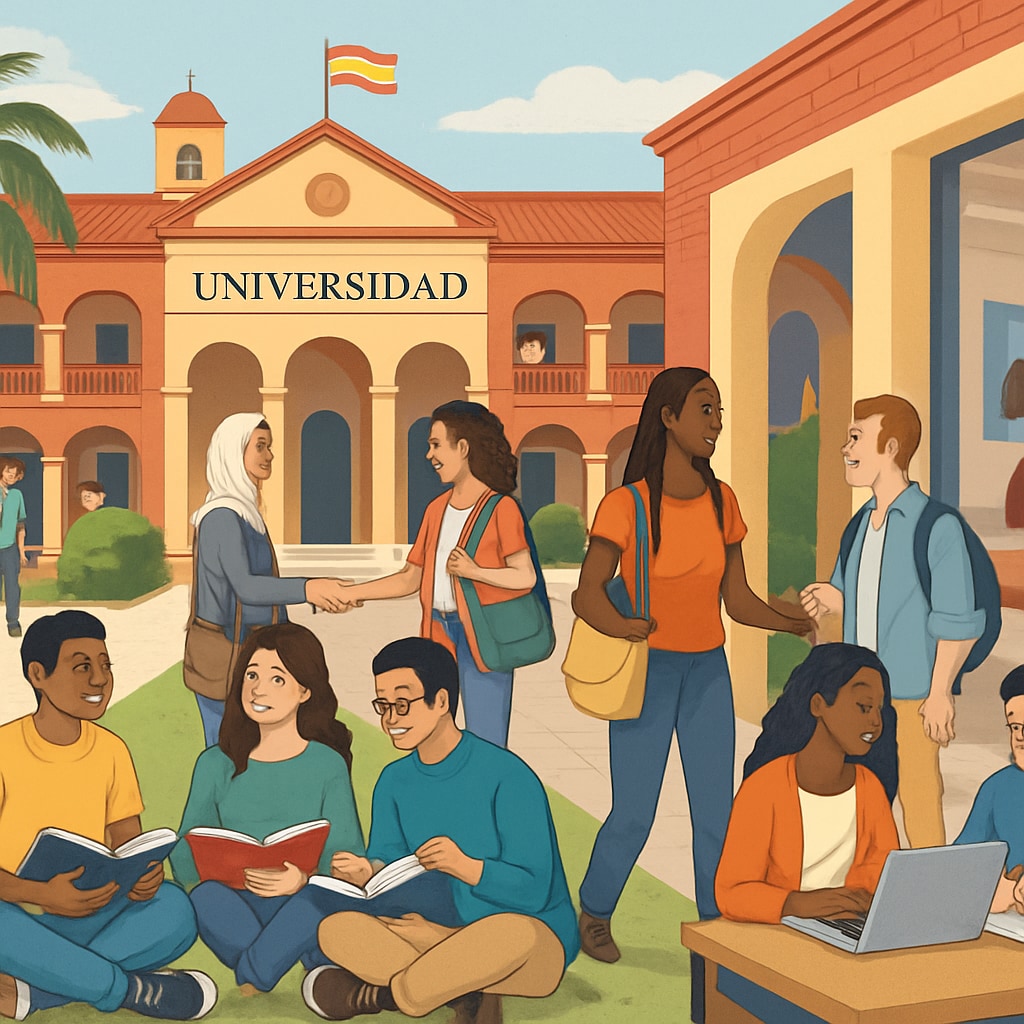In today’s interconnected world, pursuing a master’s degree abroad has become an increasingly appealing option for students. Focusing on studying abroad in Spain, cultural adaptation, and overseas master’s opportunities, this article explores how the K12 education phase can lay the groundwork for a successful international education journey. With careful preparation in language skills, cultural understanding, and global perspectives, students can thrive in Spain’s vibrant academic and social environment.
Why Choose Spain for Higher Education?
Spain is not only renowned for its diverse culture and rich history but also for its world-class universities and affordable tuition fees. For students considering studying abroad, Spain offers programs taught in both Spanish and English, catering to a wide range of academic interests. Additionally, the Spanish lifestyle, blending tradition and modernity, provides an enriching cultural experience. However, adapting to this dynamic environment requires preparation during the formative K12 years.

Building Language Proficiency Early
Language is the cornerstone of successful integration and academic achievement. While many master’s programs in Spain offer courses in English, knowing Spanish significantly enhances the experience. Students in their K12 years should focus on developing Spanish language skills through formal classes, immersive programs, or online platforms. For example:
- Enroll in Spanish language courses at school or through extracurricular programs.
- Utilize language learning apps like Duolingo or Rosetta Stone for additional practice.
- Participate in cultural exchange programs or pen-pal initiatives to practice conversational Spanish.
Such efforts not only improve communication skills but also foster confidence in navigating daily life in Spain.
Developing Cultural Adaptation Skills
Adapting to a new culture is vital for students studying abroad. In the context of Spain, understanding traditions, social norms, and values can make the transition smoother. Parents and educators can encourage cultural adaptability through:
- Exposing students to Spanish literature, films, and music to familiarize them with cultural nuances.
- Organizing family trips to Spain to experience the culture firsthand.
- Encouraging participation in multicultural school events or workshops.
Such exposure helps students approach cultural differences with an open mind, turning potential challenges into valuable learning experiences.

Promoting Global Perspectives
International education is not just about academics; it’s also about broadening horizons. Cultivating a global mindset during K12 years equips students to engage with diverse ideas and communities. This can be achieved through:
- Encouraging participation in international competitions or Model United Nations (MUN).
- Incorporating global current events and multicultural topics into classroom discussions.
- Fostering friendships with peers from different cultural backgrounds.
By developing global perspectives, students are better prepared to contribute meaningfully to their academic and social environments abroad.
Conclusion: Preparing for Success in Spain
Preparing for studying abroad in Spain, cultural adaptation, and overseas master’s opportunities begins long before university applications. By focusing on language acquisition, cultural adaptability, and global awareness during K12 years, students build a strong foundation for success. Spain offers not just quality education but also a gateway to personal growth and international opportunities, making it an ideal destination for aspiring global citizens.
With these strategies in place, students and families can confidently embark on this transformative educational journey, ensuring a seamless transition into Spain’s academic and cultural landscape.
Readability guidance: This article uses short paragraphs, lists, and clear transitions to ensure readability. It provides actionable insights for students and parents, emphasizing practical steps for preparation.


